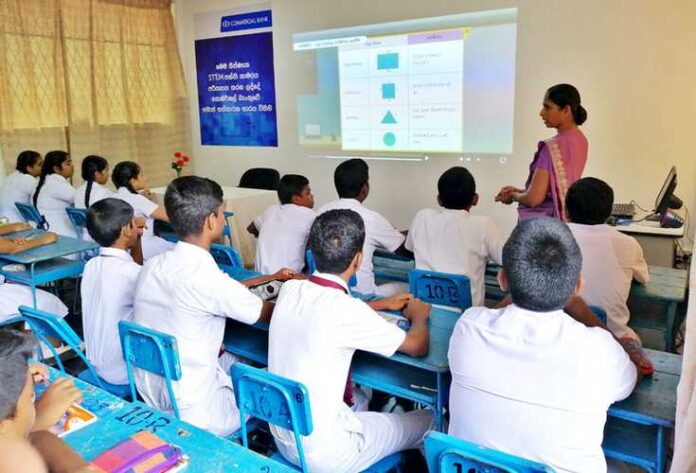July 20, Colombo (LNW): Prime Minister Dr Harini Amarasuriya, who also oversees the ministries of Education, Higher Education, and Vocational Training, has reaffirmed the government’s commitment to implementing a wide-ranging transformation of Sri Lanka’s education system.
Speaking at a regional educational forum in Galle yesterday (19), Dr Amarasuriya outlined key objectives of the reform, including the critical need to reduce classroom sizes and overhaul teacher training.
Addressing an audience of provincial education officials at the Dakshinapaya Auditorium, the Prime Minister stressed that overcrowded classrooms—often accommodating up to 60 pupils—stand in direct opposition to any effort to deliver meaningful learning experiences. The government is now aiming to bring class sizes down to a more manageable 25 to 30 students per room.
She also made it clear that the education reform initiative is far more comprehensive than a simple curriculum revision. “We are not just tinkering with textbooks,” she said. “This is a holistic transformation that addresses the professionalism of teachers, the structure of educational administration, and the upgrading of school infrastructure to ensure equitable, high-quality learning opportunities for every child.”
Dr Amarasuriya acknowledged that the road ahead will be demanding and met with both support and scepticism. “This reform effort predates our coming to power. It is rooted in extensive dialogue with educators, policy experts, and community voices. Some will challenge it constructively, whilst others may choose to politicise the process. But we are clear: education reform is a national necessity, not a partisan project.”
One area of concern she highlighted is the stagnation of teacher training curricula, which she revealed had not been updated in over 16 years. “That must change,” she stated. “From August onwards, we will begin training those responsible for teacher education, ensuring that the next generation of teachers receives instruction that is relevant, modern, and rooted in best practice.”
The Prime Minister also spoke about the importance of dignity and choice in education, particularly for students pursuing non-academic paths. In support of this, Deputy Minister of Vocational Education, Mr Nalin Hewage, announced that vocational training institutions will be structurally integrated into the broader education framework.
“We are moving away from the outdated notion that vocational education is a fallback for underachievers,” he said. “Instead, we’re creating pathways for students to pursue skill-based learning based on their strengths and interests from an early stage.”
The event was attended by a broad spectrum of education stakeholders, including Southern Province Governor Bandula Harischandra, MP Nihal Galappaththi, Ministry of Education Secretary Mr Nalaka Kaluwawa, Chief Secretary of the Southern Province Mr Sumith Alahakoon, as well as representatives from the Department of Examinations, National Institute of Education, and provincial education authorities.

